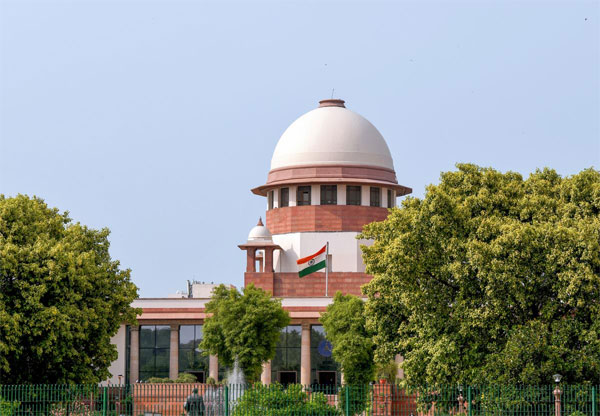Daijiworld Media Network - New Delhi
New Delhi, Aug 14: The Supreme Court has ordered the Election Commission of India (ECI) to publicly release the list of over 65 lakh voters proposed for deletion during the Special Intensive Revision (SIR) of electoral rolls in Bihar. The court's directive, which includes uploading the full list online with stated reasons for each deletion and allowing Aadhaar-based identification for claims, has triggered fresh political debate over electoral transparency.
Despite the scrutiny, ECI officials say the process has already been conducted with transparency and full political participation. According to them, all political parties in Bihar received the draft deletion lists as early as July 20, 2025, which included names, reasons for proposed removal such as death, migration, duplication, or being untraceable, along with guidance for raising objections.

In Sitamarhi, for instance, Booth Level Officers (BLOs) held meetings with Booth Level Agents (BLAs) from BJP, Congress, JD(U), and Jan Suraaj. The BLOs read aloud the draft lists, explained the reasons, and invited objections and new applications for voter inclusion. Similar documented interactions took place in Gopalganj’s Nurichak village, where names flagged for deletion were shared publicly, including 28 voters without valid documents, with community members encouraged to submit feedback.
The ECI clarified that Aadhaar has already been in use as an accepted ID for verification purposes in the SIR process, making the Supreme Court's direction more of a reinforcement than a new requirement. The enumeration forms had specific fields for Aadhaar and other supporting identity proofs, and BLOs had been instructed to assist voters accordingly.
Officials also point out that despite political accusations, no formal complaints have been registered at the booth level by opposition party agents, including those from the RJD or Congress. Meeting registers bear the signatures of party representatives who participated in the deletion review process.
Ground reports from several districts reflect a detailed verification exercise, where BLOs personally visited households, consulted with neighbours and local representatives, and displayed deletion lists at polling centres to ensure transparency. Voters were encouraged to review names and submit claims or corrections using Forms 6, 7, or 8 — available in both digital and physical formats.
To avoid misuse, the Commission imposed a cap on the number of claims a political agent could file per day. Officials say these efforts reflect not just compliance with the spirit of the Supreme Court order but a proactive approach to electoral integrity that predates it.
While the court’s directive puts the spotlight on the ECI, the Commission maintains that it has followed due process every step of the way — from involving political parties and conducting door-to-door verification to enabling open access to voter forms and identity-based claims.